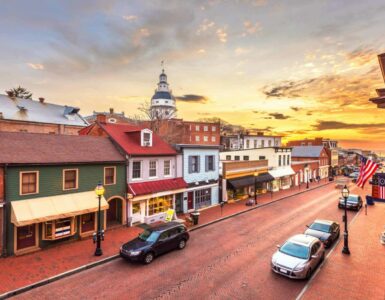The COVID-19 vaccine program is progressing rapidly. But, with hope, it brings controversial vaccine passports. You need to know what these are.
What Is The Vaccine Passport?

COVID-19 has hit the world hard and made many people wary about going out in public, especially to areas where there are lots of people. The result is that they avoid these places.
Simultaneously, there are places where people need and want to gather, such as unemployment offices, doctors, and even concerts. Of course, the more people the greater the likelihood that the virus will spread.
To avoid this, a vaccine passport would be issued. The passport would confirm that the holder has been fully vaccinated against COVID-19 and is allowed into a specific establishment.
Where Are You Likely To Need One?
Shops and other places that are considered essential cannot ban anyone who hasn’t been vaccinated, they still need to ban food.
But, they can limit the times, allowing vaccinated people to come in at a different time to unvaccinated. To prove you are vaccinated you would need a passport. This approach could also be used at medical establishments, concerts, government buildings, and even cruise ships.
The idea is that the vaccine passport will allow a level of normality as people can move safely knowing they are at very low risk of infection.
Concerns Regarding The Vaccine Passport
However, while the principle may seem sound, there are issues.
The first is simply that this approach is discrimination. Those who have not been vaccinated will be unable to attend specific events or even use facilities at certain times. This isn’t fair as the unvaccinated people may not have yet had the opportunity to be vaccinated.
Equally, if they have had the opportunity, it is every person’s right to say no to a vaccine. If this is the case they are being discriminated against because of their personal beliefs. Experts will argue that this is fundamentally no different from a religious person being denied access to a building on the grounds that they are religious.
In addition, showing a vaccine passport means disclosing your personal medical details to anyone who needs to see the passport. These are personal details and protected under federal law.
Of course, it is worth noting that most states require the disclosure of private medical information to confirm vaccinations against various diseases including:
- Hepatitis B
- Rubella
- Measles
- Mumps
- Polio
These have to be confirmed before someone can be admitted to school or even travel. In this sense, the vaccine passport is no different.
Perhaps the biggest issue is simply that it feels wrong because it will allow some people to undertake activities while others cannot through no fault of their own.

That is the biggest difference between the COVID-19 passport and the existing disclosure of information, everyone has had the opportunity to get vaccines for the above diseases, but not everyone has been offered a COVID-19 vaccination yet.
The Likely Outcome
It seems likely that a vaccine passport will eventually be created. However, for it to be successfully adopted it must be deemed fair and should protect the privacy of the holder.
That means a set standard for all issued passports and defined rules regarding what information is allowed to be shared. After all, a vaccine passport is less intrusive or controversial if it simply tells someone that a person has been vaccinated or not.
Of course, the US government has never endorsed the idea of all citizens needing to carry a credential, making it highly probable that the vaccine passport will remain just an idea.











